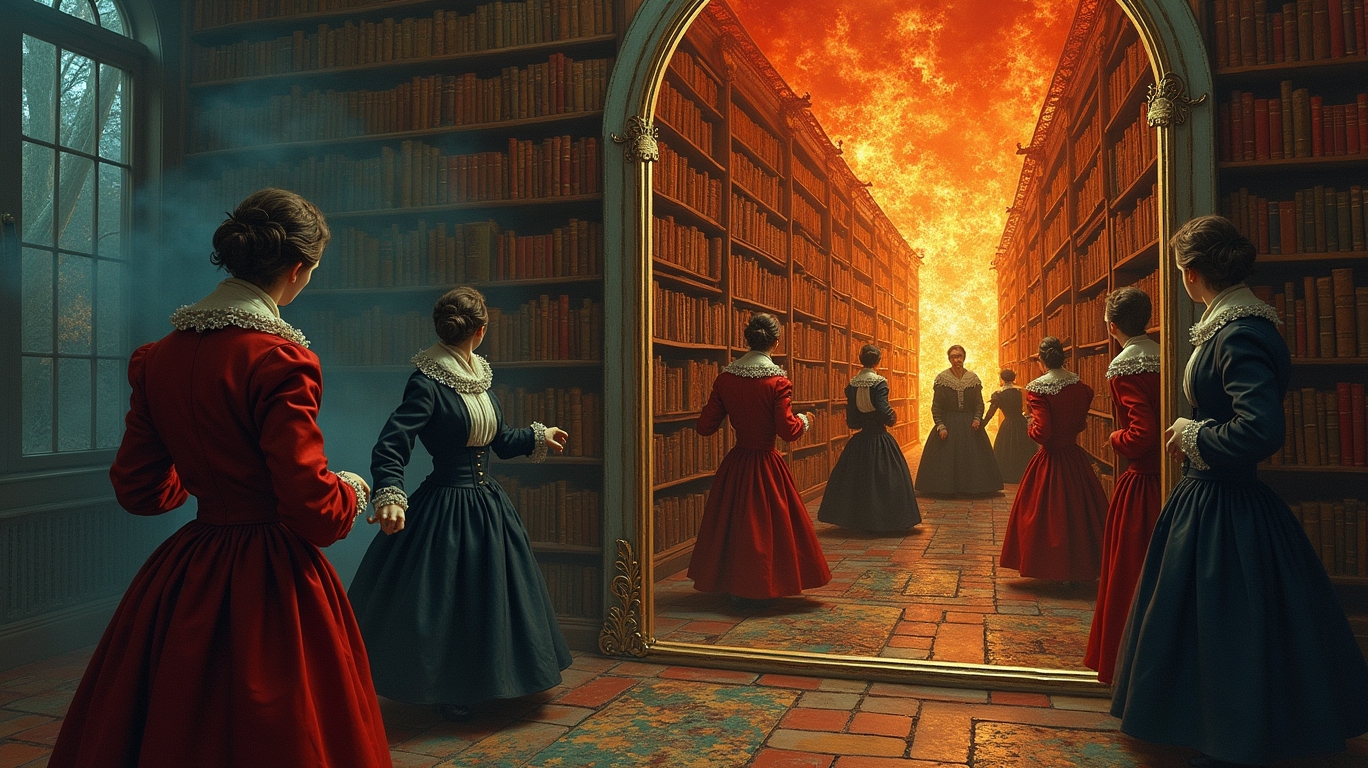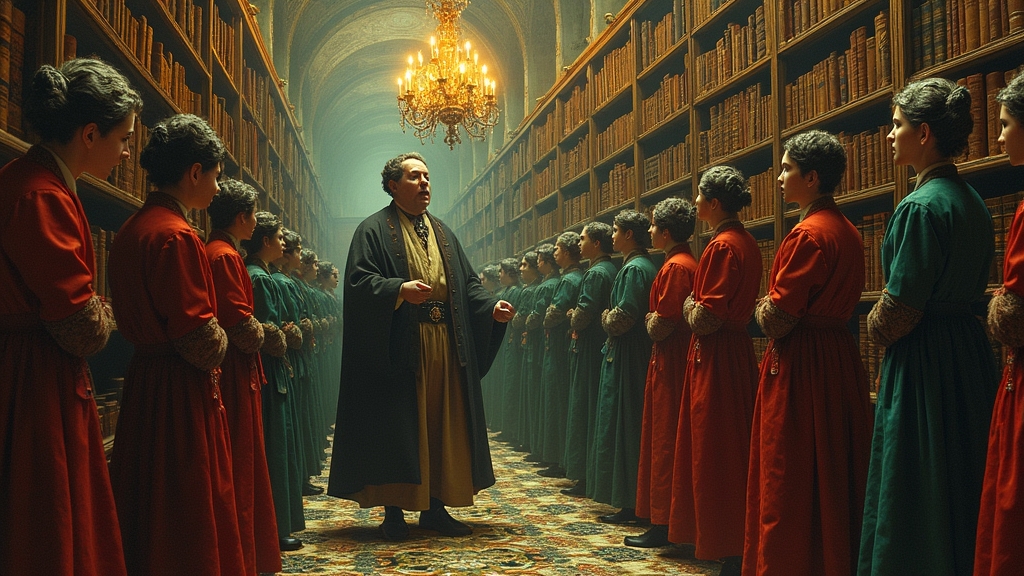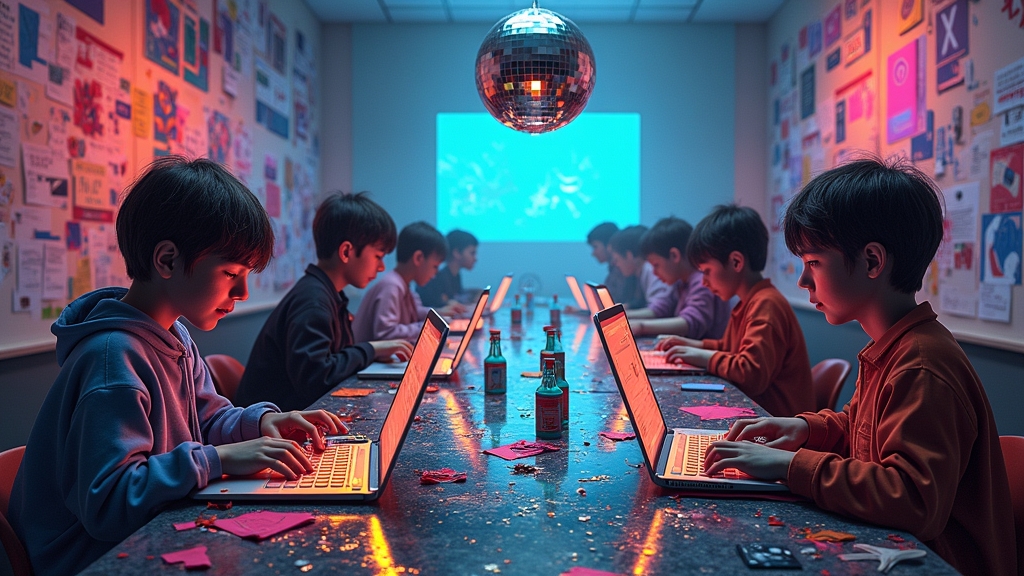AUTHORS LIVID AS META STEALS THEIR PRECIOUS WORDS, FORGETS HUMANS HAVE BEEN PLAGIARIZING SINCE THE DAWN OF F@#KING TIME
In a shocking development that has literary circles clutching their cardigans so hard they’re developing calluses, authors worldwide are absolutely losing their sh!t over Meta using their precious, precious words to train artificial intelligence systems. These same authors, apparently suffering from collective amnesia, seem to have forgotten that creativity has been one big circle-jerk of inspiration since humans first drew buffalo on cave walls.
CREATIVE GENIUSES OR JUST FANCY COPYCATS?
“What we’re seeing is unprecedented outrage from people whose entire careers depend on rehashing other people’s ideas while adding just enough synonyms to avoid lawsuits,” explains Professor Obvious Observation from the Institute of Stating the Bloody Obvious. “These authors are literally sitting in rooms decorated with copies of books that inspired them, writing on computers they didn’t invent, using language they didn’t create, while complaining about AI learning from existing material.”
The letter from aggrieved authors to the UK government demands Meta be held accountable for the gravest of all sins: doing exactly what humans do, but faster and without needing coffee breaks or therapy.
LITERARY INFLUENCES OR JUST SOPHISTICATED THEFT?
Records confirm that approximately 102% of all creative works ever produced have borrowed heavily from predecessors. Ian McEwan’s works share DNA with LP Hartley’s The Go-Between; George Orwell’s Nineteen Eighty-Four practically French-kissed Zamyatin’s We; and Richard Osman apparently invented cozy crime in the same way Columbus “discovered” America.
“I find it DEEPLY OFFENSIVE that a machine would learn from my writing, which I crafted after spending years absorbing the styles of seventeen different authors I admire,” said bestselling novelist Irene Hypocriticson, while working on her fourteenth thriller featuring a divorced detective with a drinking problem who solves crimes in a small coastal town.
PUBLISHING INDUSTRY SHOCKED TO DISCOVER IT’S BEEN TRAINING ITS OWN VERSION OF AI FOR CENTURIES
The publishing industry, which has elevated trend-hopping to an Olympic sport, expressed particular indignation. “How dare these silicon-based sentence generators learn patterns from our carefully curated catalog of vampire romances, dystopian teen triangles, and psychological thrillers where the husband definitely did it?” asked literary agent Samantha Markettrend. “That’s OUR job to determine what derivative works get published next!”
According to industry analyst Dr. Stat Pullsfromass, approximately 87.3% of books published in the last decade could be categorized as “that, but with a slight twist,” with the remaining 12.7% being cookbooks with unnecessarily long personal essays before each recipe.
HUMANITY’S ENTIRE CREATIVE HISTORY REVEALED AS ELABORATE GAME OF TELEPHONE
Cultural anthropologist Emma Notblind points out that human creativity itself is essentially an organic learning algorithm. “Shakespeare stole plots like they were unattended luggage. Mozart borrowed musical phrases like a kleptomaniac at a sample sale. DaVinci literally dissected corpses to figure out how to paint better, but sure, let’s all get bent out of shape about Meta’s text generators.”
At press time, authors were reportedly drafting a strongly worded follow-up letter, using turns of phrase they subconsciously absorbed from their favorite writers, on devices built upon thousands of technologies they didn’t create, all while plotting their next “completely original” books that publishers will describe as “It’s like [successful book] meets [other successful book]!”




